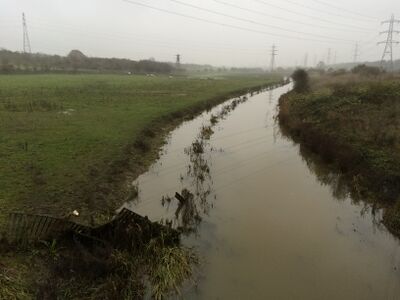Difference between revisions of "1D Open Channels"
Rohan.king (talk | contribs) m (→Basic Commands) |
Rohan.king (talk | contribs) m (→Basic Commands) |
||
| Line 16: | Line 16: | ||
<font color="blue"><tt>Read GIS Table Links</tt></font> <font color="red"><tt>==</tt></font><tt>..\model\mi\1d_xs_xxxxx.MIF</tt> ! corresponding cross-section polylines <br> | <font color="blue"><tt>Read GIS Table Links</tt></font> <font color="red"><tt>==</tt></font><tt>..\model\mi\1d_xs_xxxxx.MIF</tt> ! corresponding cross-section polylines <br> | ||
<br> | <br> | ||
| − | The tutorial model [Tutorial_Module04 here] runs through the necessary layers and setup for a 1D open channel within a model. | + | The tutorial model [[Tutorial_Module04 here]] runs through the necessary layers and setup for a 1D open channel within a model. |
<br> | <br> | ||
<br> | <br> | ||
Any further questions please email TUFLOW support: [mailto:support@tuflow.com support@tuflow.com] | Any further questions please email TUFLOW support: [mailto:support@tuflow.com support@tuflow.com] | ||
Revision as of 23:56, 9 February 2016
Page Under Construction
Introduction
Open waterways (channels) are most commonly modelled as "S" type channels, the S signifies a sloping channel that can handle steep, super-critical flows. Open channels can either be modeled as an inertial or non-inertial channel, the latter removes the Courant stability condition and is useful for stabilizing very short S channels with high velocities.
Example of an open channel that could be modelled in 1D

Basic Commands
Within the *.ecf the following commands and files are at a minimum required to a model an open channel:
Read GIS Network ==..\model\mi\1d_nwke_xxxxx.MIF ! network layer containing "S" channel alignments
Read GIS Table Links ==..\model\mi\1d_xs_xxxxx.MIF ! corresponding cross-section polylines
The tutorial model Tutorial_Module04 here runs through the necessary layers and setup for a 1D open channel within a model.
Any further questions please email TUFLOW support: support@tuflow.com